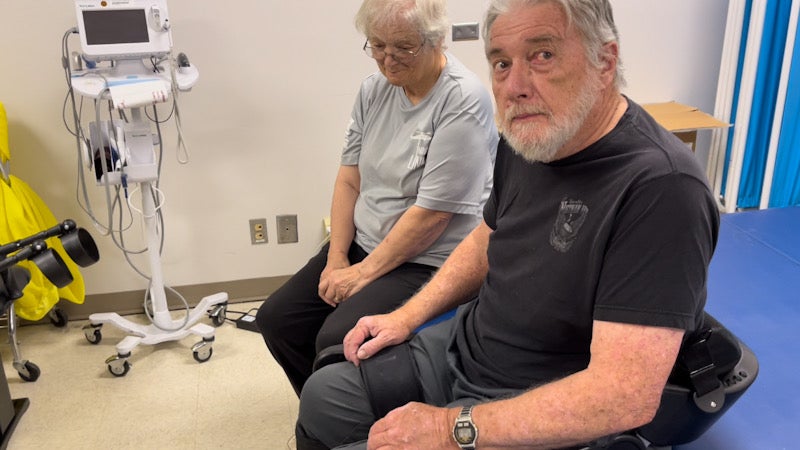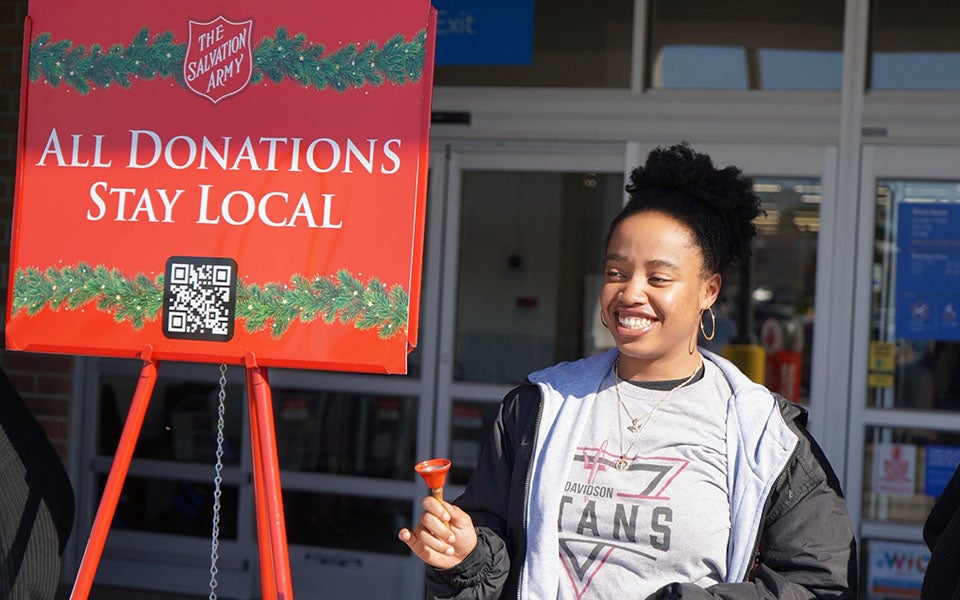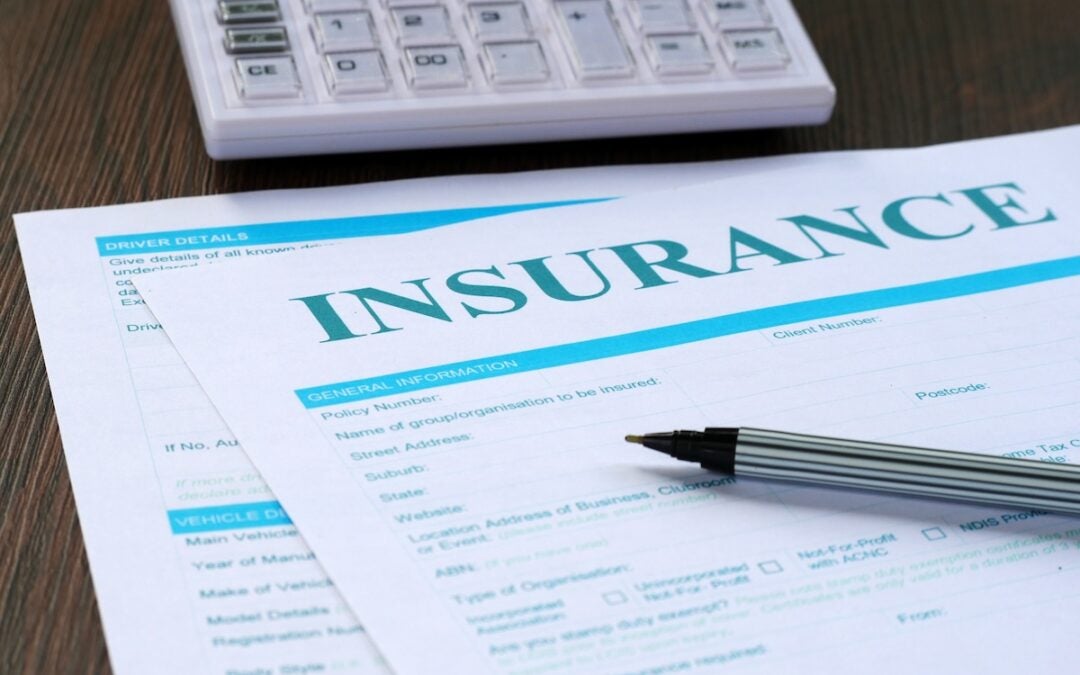Eddie Wicker hasn’t walked in nine years and is completely paralyzed from the waist down.
But the Vietnam War veteran and retired robotics engineer stood up and walked for the first time recently thanks to an exoskeleton program at the Charlie Norwood Veterans Administration Medical Center – Downtown Division in Augusta.
Wicker is part of a physical therapy program run by Dr. Matt Bounds, a physical therapist. Bounds puts veterans with severe spinal cord injuries through a rigorous 30 to 40-hour program and teaches them how to walk again using a motorized machine that moves the veterans’ legs for them. The machines sense the wearer lean their upper torso forward and respond by lifting the patient’s body and then stepping forward.
“It’s opening up the door for more veterans to walk when they haven’t been able to walk for years,” Bounds said.
MORE: Veterans helping veterans and their families
Wicker is one of Bounds’ inspiring patients. Wicker is 72 years old and lives with his wife Pat on a 56-acre farm near a South Carolina town with a number for its name – Ninety Six.
Once he masters the exoskeleton, he has three goals.
“Just the satisfaction of being able to face somebody eye to eye. Instead of looking up at ‘em out of a wheelchair. That’ll be awful nice,” Wicker said.

He also wants to take a stroll through the pastures of his farm like he did before he fell off a ladder and landed on a protrusion that severed his spine.
And finally he wants to inspire other veterans who are paralyzed.
“There’s a lot of guys that have an injury like this…they give up. And sit in the house and look out the window and just watch TV. They don’t get any exercise and their quality of life goes downhill,” he said. “Everybody should feel good. You shouldn’t be in a room looking out a window and saying, ‘It’s all over.’ It’s not all over. It can be a beginning.”
Wicker is a volunteer with the Augusta chapter of the Paralyzed Veterans Association. He and other veterans go fishing, bowling, play pickleball and support each other and keep active.
MORE: Sylvia Cooper: Deceptions, taxes, curses and snakes in the grass make for quite a week
Being active is what made Wicker a possible candidate for the exoskeleton. Many older patients lose so much leg flexibility that they can’t be paired with an exoskeleton safely, Bounds said.
“The training itself is very physically and mentally taxing,” Bounds said.
Each exoskeleton costs the Veterans Administration between $80,000 to $100,000. Once veterans pass Bounds’ program, they get an exoskeleton free of charge. The machine can operate for about two hours of walking, then it takes about eight hours to recharge.
Veterans come back for follow-on therapy and tell Bounds about how much the exoskeleton has changed their lives.
“One said he was able for the first time to do simple things, like stand up and cook in the kitchen with his kids. He was able to go to a buddy’s wedding and stand up, and stand as one of the groomsmen,” Bounds said. “He is able to go to the gym and shoot basketball with his son. Or he can just stand on his back deck with his buddies.”
MORE: Augusta Commission may ditch pet registration ordinance
There have been some veterans who are in excellent physical shape but tell Bounds they are fine with being in a wheelchair and don’t want the exoskeleton. Similar to people in the deaf community who reject cochlear implants because they are proud to be part of the deaf community – these veterans have come to terms with their disability and are proud of how they have overcome and thrive.
“I’ve heard from some veterans, especially those who are die hard in the community, made that comment,” Bounds said. “They’re like, ‘This is not for me.’”
For paralyzed veterans who want to apply for an exoskeleton, Bounds said they can call him directly. His number is (706) 733-0188, extension 31950.
Joshua B. Good is a staff reporter covering Columbia County and military/veterans’ issues for The Augusta Press. Reach him at joshua@theaugustapress.com










